Improve math skills Math Worksheets for Ages 5-9
18 filtered results
-
From - To
Boost your child's confidence and proficiency in mathematics with our expertly designed math worksheets for ages 5-9. Our comprehensive collection helps children grasp essential math concepts, from basic addition and subtraction to more advanced topics like multiplication and division. Each worksheet is crafted to make learning engaging and fun, ensuring young minds stay curious and motivated. Ideal for both classroom use and home practice, our math worksheets provide a solid foundation for academic success. Empower your child to excel in math with Kids Academy's trusted resources. Download and get started today!
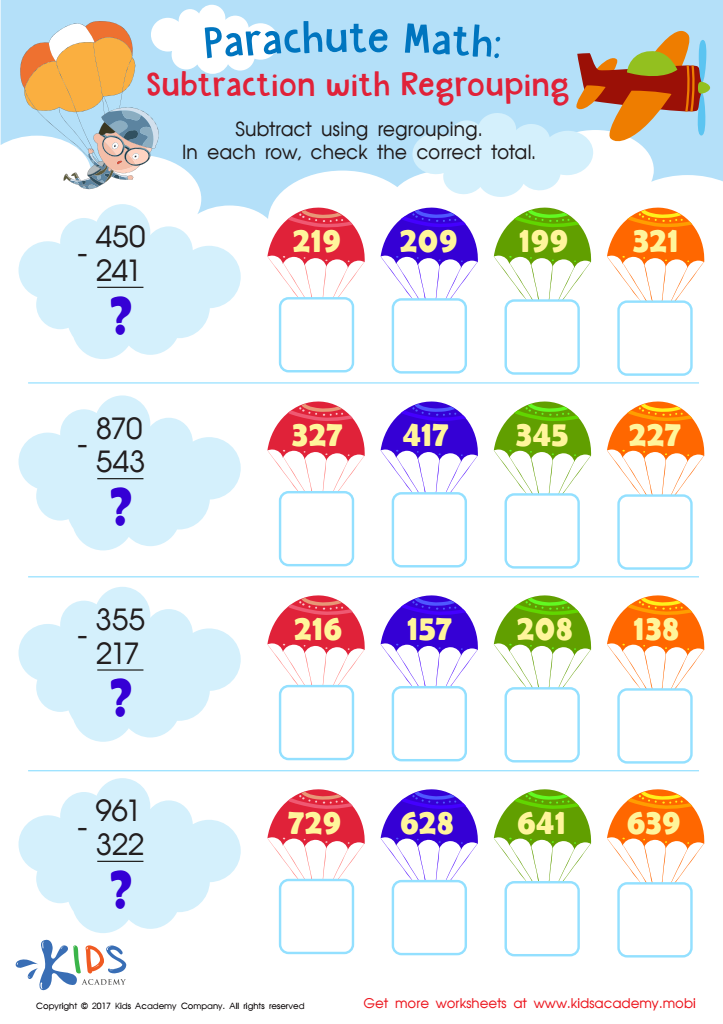

Subtraction with Regrouping for 3rd Grade Worksheet
Improving math skills for children aged 5-9 is crucial because these early years form the foundation for all future learning and cognitive development. During this period, kids are developing essential brain connections and problem-solving skills that will serve them throughout their education and lives.
For one, strong math skills at an early age enhance logical thinking and the ability to think critically. When children practice math, they learn to identify patterns, understand sequences, and tackle problems systematically. These skills are transferable to other academic subjects and real-life situations.
Additionally, early proficiency in math can boost a child's confidence. A solid grasp of basic math concepts like addition, subtraction, and number sense makes future mathematical learning less daunting and more achievable. This confidence can lead to a positive attitude toward schooling and educational success in general.
Math skills are also crucial for everyday life. Whether it's measuring ingredients for a recipe, understanding time, or managing money, math permeates daily routines. Providing young children with a strong mathematical foundation equips them with practical skills they will utilize for a lifetime.
Finally, early math proficiency can help close achievement gaps. Research shows that children who enter kindergarten with strong math skills are more likely to excel academically later, reducing disparities in educational outcomes. Therefore, fostering math skills at ages 5-9 is not just about academics; it’s about equipping children with skills and confidence for life.
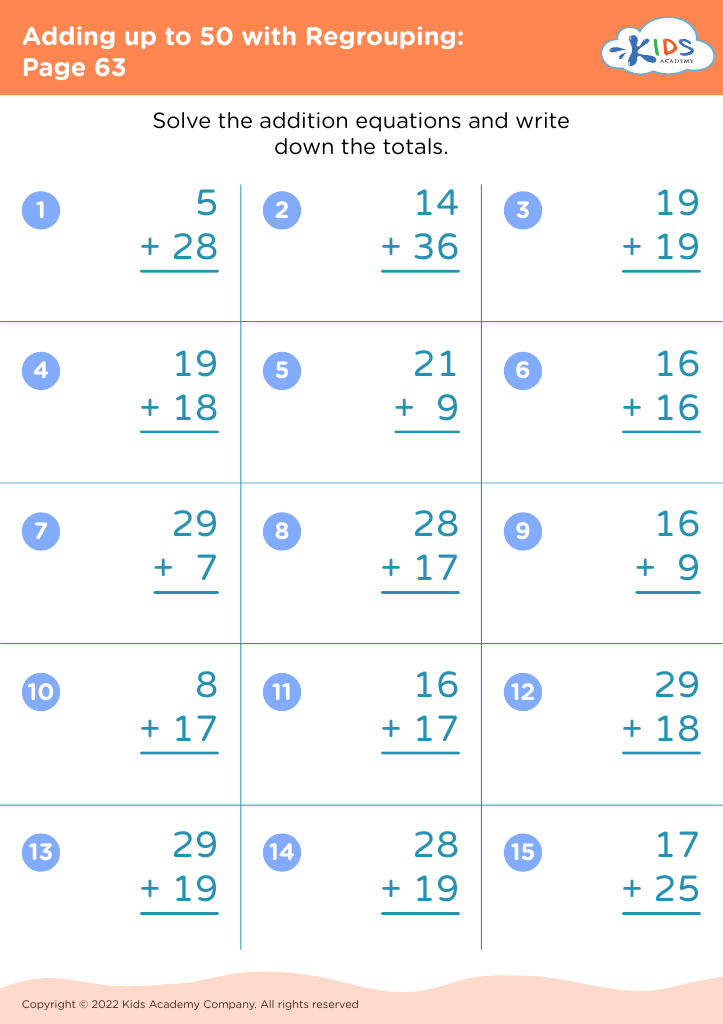


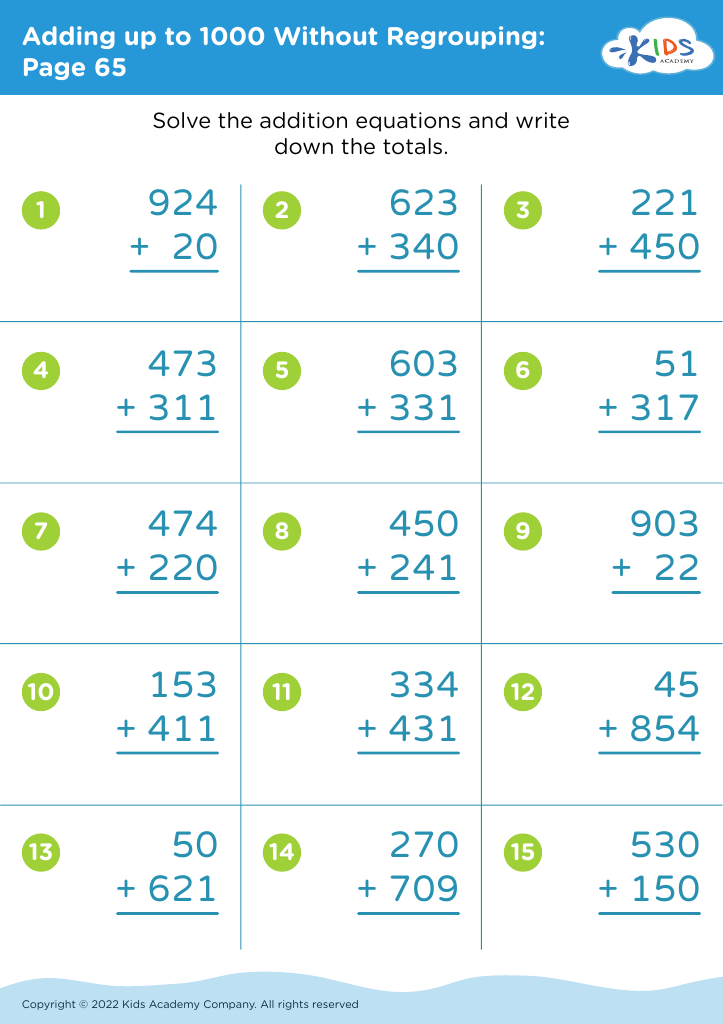




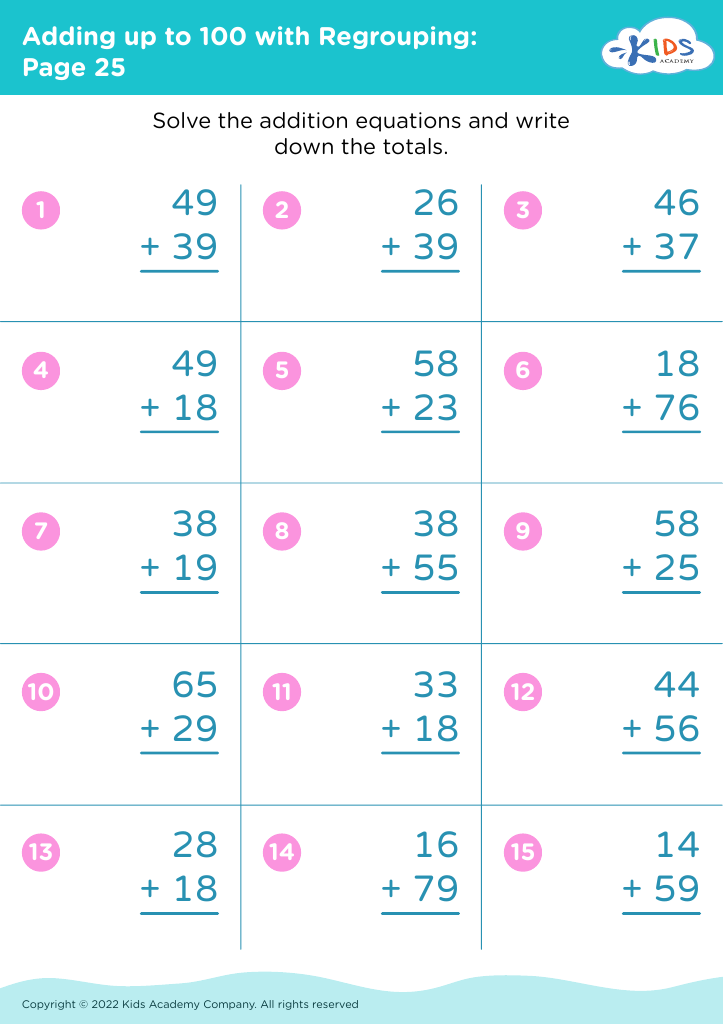

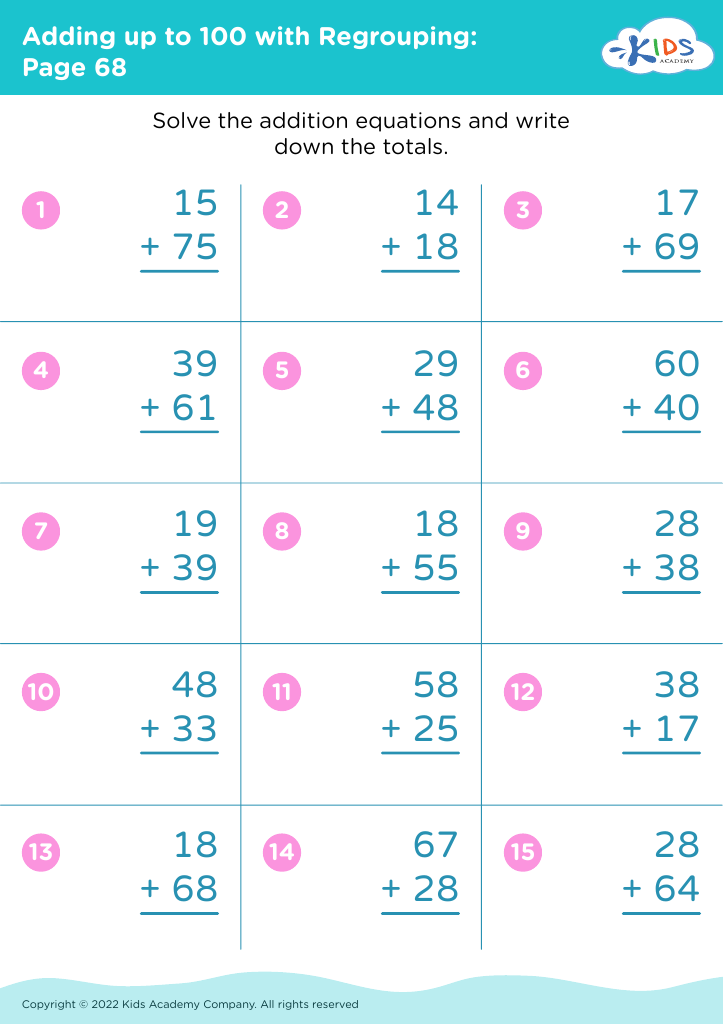
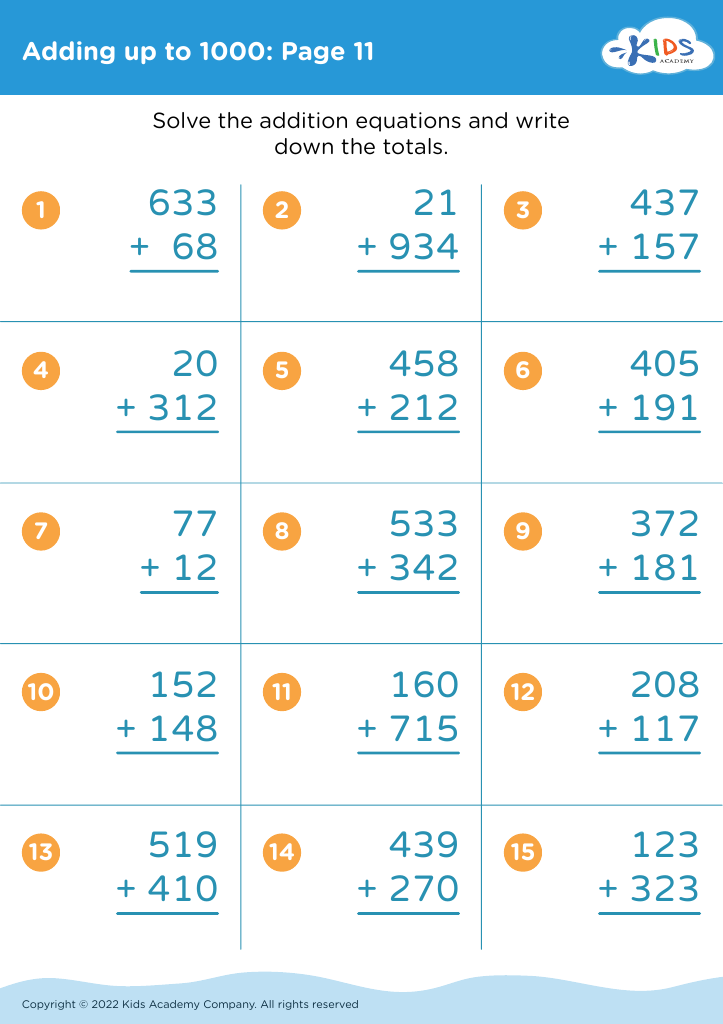


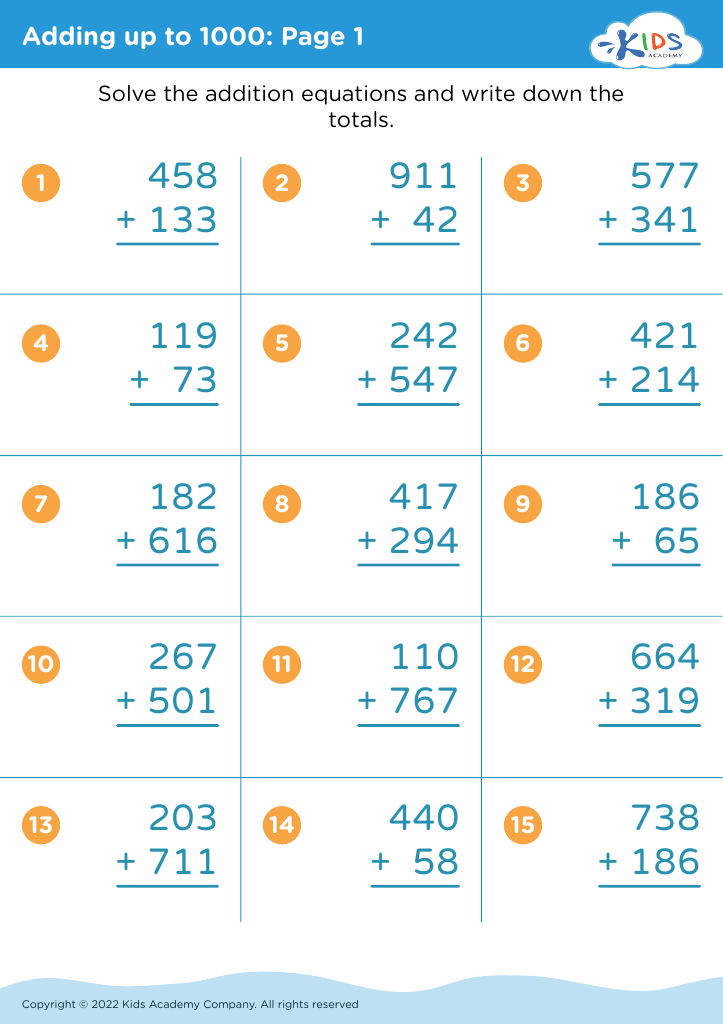

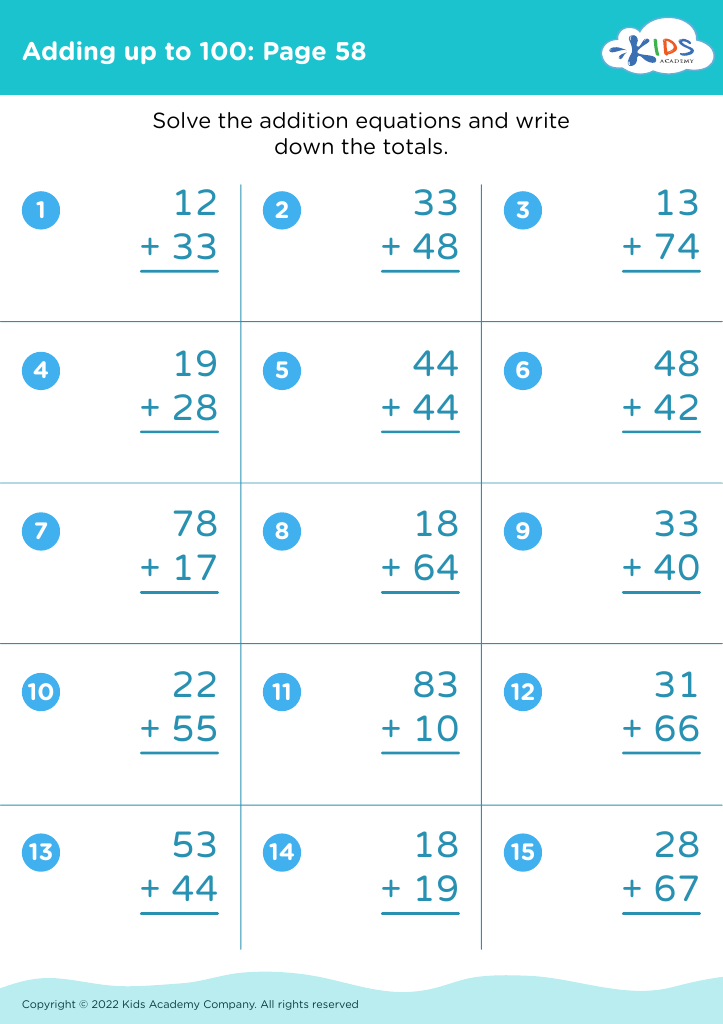
 Assign to My Students
Assign to My Students
















